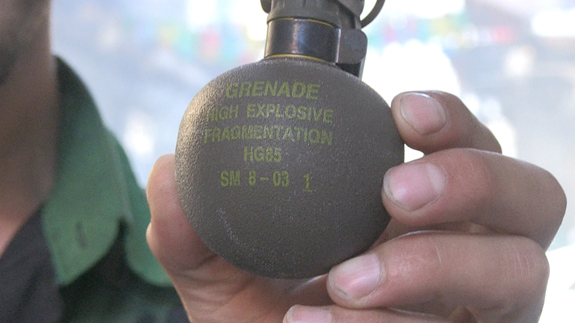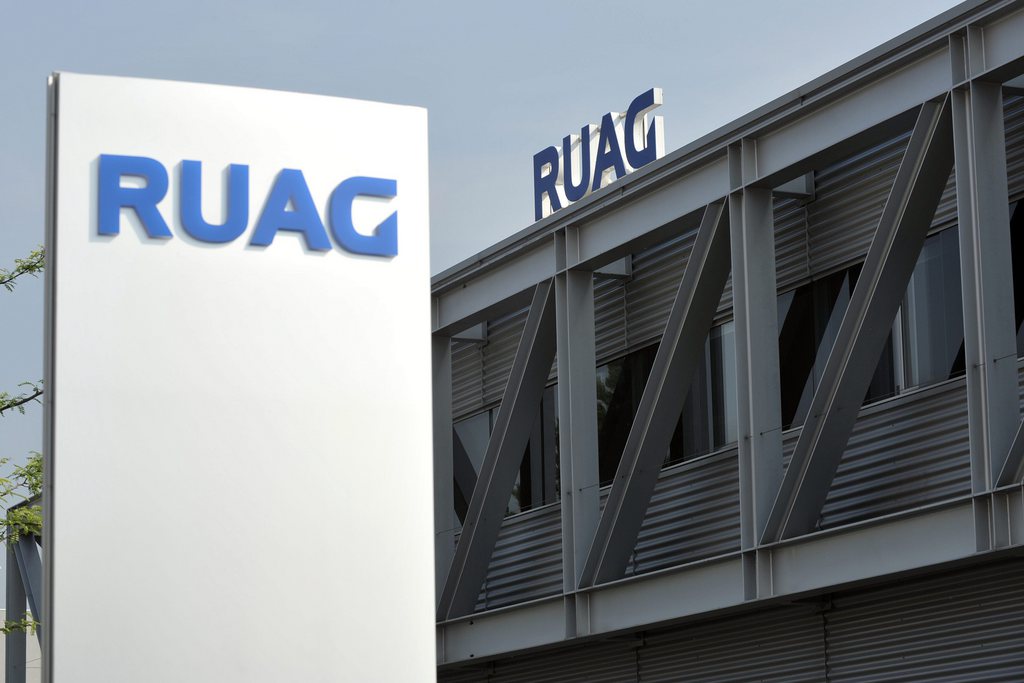Swiss toughen rules for weapons sales

The government says it is tightening its arms exports to the United Arab Emirates (UAE) and reviewing sales to other countries following an inquiry into the discovery of Swiss-made hand grenades in Syria.
The inquiry was prompted by reports in two Swiss newspapers in July that explosives manufactured by the Swiss state-owned Ruag company were used in the northern Syrian town of Marea.
Results of the joint Swiss-UAE investigation, released on Friday, found that the grenades discovered in Syria were part of a shipment to the Emirates in 2003 and 2004. The explosives were handed on to Jordan in 2004 and later “evidently made their way to Syria”, the State Secretariat for Economic Affairs (Seco) said.
However, the case occurred prior to the introduction of stricter export regulations in 2006, cabinet spokesman André Simonazzi told the media on Friday.
Further details on the investigation, demanded by parliament, are expected next month.
A total of 225,162 grenades were sent to the UAE armed forces nearly ten years ago, while Swiss arms exports to Syria were stopped in 1998.
Commitment
Seco said the cabinet had decided that new arms export licences to the UAE would have to contain a commitment not to re-export which would also have to grant Switzerland the right to carry out post-shipment inspections on site.
The economics ministry was asked to review previous war materiel exports to various countries, and the rules on non-re-export declarations will be made legally more binding, according to a statement.
Meanwhile, the cabinet has lifted the remaining restrictions on licence applications to the UAE. In July Switzerland temporarily banned war materiel exports to the Emirates – the biggest buyer of Swiss arms in 2011, including 25 unarmed military PC-21 Pilatus trainer aircraft.
The pacifist Group for a Switzerland Without an Army dismissed the government’s future measures as inadequate and difficult to apply.
“These declarations are like smoke in the eyes. There are a lot of other previous examples where such engagements or declarations by the buyers were not respected,” said activist and historian Tobia Schnebli.
Instead of trying to impose difficult on-site inspections, Switzerland should stop exporting weapons into conflict-ridden regions, he added.
Schnebli said the alpine nation’s credibility as guardian of human rights, democracy and peace was at stake.
“It is important that Switzerland, as a depositary state of the Geneva Conventions, adopts a coherent position and does not find excuses to go on doing business as usual in the interest of a very narrow sector of the economy,” he said.
History of scandals
Swiss arms sales have regularly hit the news headlines over the past few years. In 2011 weapons exports to Qatar were frozen after it was revealed that munitions sold to the Gulf state had shown up in Libya in an apparent violation of export regulations.
The ban was lifted five months later. An investigation blamed a “military logistics error” for the re-export.
The UAE was also the focus of an inquiry over the re-export of Swiss-built armoured vehicles from the UAE to Morocco in 2005.
Switzerland exported a record SFr872.7 million ($937 million) in war materiel to nearly 70 different countries in 2011.
On three occasions between 1972 and 2009 Swiss voters threw out initiatives aimed at banning weapons exports. Three years ago, the business community and the government argued that outlawing arms trade would threaten thousands of jobs.
Switzerland exported war materiel, including components and spare parts, worth a record SFr872.7 million ($912.9 million) last year, according to Seco.
The 36% increase on 2010 is due to the sale of 25 Swiss-built Pilatus PC-21 training aircraft to the United Arab Emirates.
Swiss war materiel and components went to a total of 68 countries, including neighbouring Germany and Italy, as well as Belgium and Spain. Such exports are subject to approval by the state.
Seco added that it “exercised restraint” for exports of war materiel to countries in North Africa and the Middle East, notably Saudi Arabia, Pakistan and Egypt.

In compliance with the JTI standards
More: SWI swissinfo.ch certified by the Journalism Trust Initiative














You can find an overview of ongoing debates with our journalists here . Please join us!
If you want to start a conversation about a topic raised in this article or want to report factual errors, email us at english@swissinfo.ch.